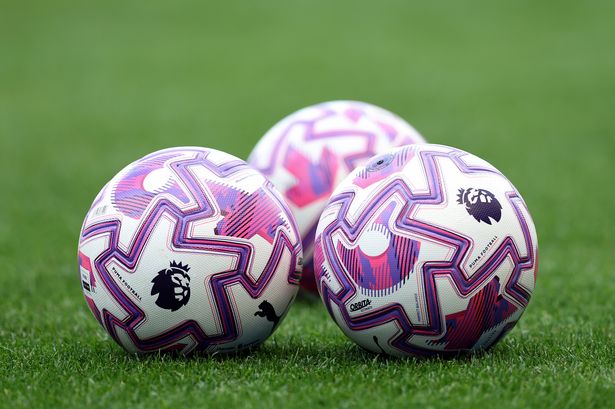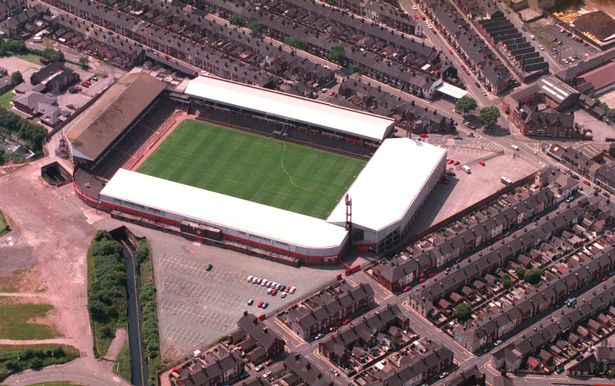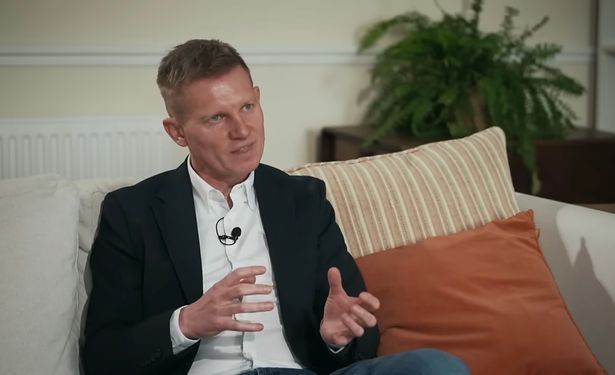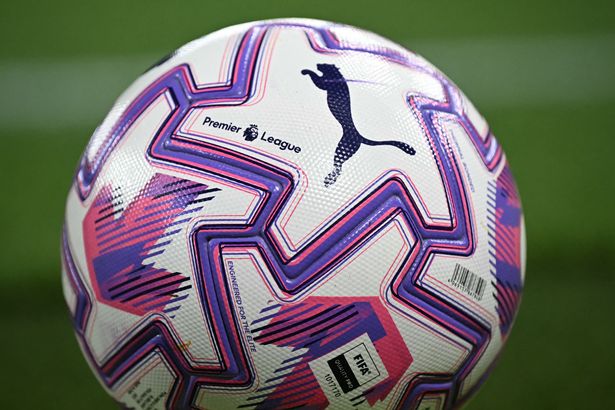How emotional support for young footballers denied their Premier League dream is changing

While young footballers up and down the country move closer to making their professional debuts, the start of the new season marks a painful moment for some of their peers. For every player handed a scholarship or academy contract, there are plenty more who have seen their dream ended - or, at the very least, knocked off course.
Adam* is one of those players. Between the ages of 12 and 16 he was in the academy of the Premier League side he grew up supporting, and missing out on a scholarship hit him hard.
“There were maybe 12 of us who had a chance of getting a scholar,” Adam tells Mirror Football . “One of the lads left early… so then it was like 10 or 11 who had a chance, and I was the only one really who didn't get a scholar that was kind of expected to.
From the coaches’ side they were very much like we don't see how we can develop you, but it was also really tough for me as well because there were two keepers at the time, me and another lad, and he got a scholar and I didn't. I went on pre-season tour with the 18s, trained with the 18s, played all our tournaments - without being arrogant it didn't make sense how he got one and I didn't.”
Adam is still in his teens, and this summer signed a contract with a non-league club who have offered him a way into senior men’s football. However, there were times when he thought about quitting the sport, and credits Support After Sport with keeping his love for the game.
Support After Sport is an organisation set up by former Stoke City youngster Rich Wilkinson, with the goal of offering emotional support and counselling to young footballers let go by academies. He stepped away from football for the best part of 20 years after the disappointment of not being offered terms at his boyhood club, and used the experience to make sure others can avoid going down his path.
“My journey with Stoke City was that I'd been on the terraces at the Bootham end watching them play from the age of six, maybe,” he explains. “I'd always followed them, and as you can imagine some of the players - even when I first got taken on at about 12 years old - some of the players were still there. So all of a sudden it had gone from watching them in the Bootham end to rubbing shoulders with them inside the ground.”
He still vividly remembers one moment, while waiting for his dad to pick him up after playing overseas for Stoke’s youth team, when he felt within touching distance of realising his dream. He realises now that this possibly made the disappointment hit harder, to the point where football went from being his entire life to something he didn’t want any part of.

“We stood on the terrace and looked out at the pitch at the Victoria Ground, and he [the coach] said 'You've probably got one more season before you'll be on that pitch, whether it's reserves or first team’,” he continues. “I was just like 'wow', and after that night I was absolutely telling everybody - friends, family, absolutely everybody - I've got this in the bag.
“It never was that for me, they'd just been telling me - I'd say it's a pack of lies but they'd just been telling me perhaps what they thought may happen, but I'd been taking it as 'absolutely it will happen'.
"When it came to schoolwork and that, I wasn't interested. With my GCSEs i wasn't really interested, I was going to be playing football for Stoke City, that was the end of it.
“So after the GCSEs when we got the news it was just a letter to me saying 'unfortunately we won't be taking you on next season'. The pain of that letter was so strong.
“When i got that letter, I took it to the family bathroom and literally opened it, read it, and there was no emotion. I was absolutely devastated when I read it, but as soon as I walked out that bathroom door I thought 'no, not having that'. I just shut it down, shut it away, and never processed it.”

Rich created a life without football, something which he admits now is “really destroying”. He took a number of jobs, including starting a photography business which is still active today, but it was only when he began training as a counsellor that football came back into his life.
Support After Sport was born out of ‘Sidelined ’, a 2023 documentary looking at the mental health of footballers deselected by academies. Rich was approached to feature after filmmaker Ben Marlow found his research into support for released players, and a number of other former footballers have joined him as part of SAS after the show made clear the need for that kind of specialised support.
Those ex-footballers are able to offer lived experience which can convince some current and recently-released players to speak to them. Among them is Michael*, who had one year as a pro with a Football League club and several more in non-league but never hit the same heights he reached in his teenage years when he captained a schoolboy side alongside a team-mate who would go on to play for England at several major international tournaments.

Michael had sessions with Rich himself while training as a therapist, while another member of the organisation arrived after a 20-year professional career within which it became clear he had never fully got over his first rejection as a youngster.
“Between the three of us we had Rich who was like through schoolboy process thenn deselected, i got into the game for a bit and had a little sniff of it, and then we've also got somebody who's been in the game but struggled his whole career because he never got over that first rejection,” Michael says. “It means we give quite a broad offering."
While aftercare has improved at some levels of the game, he still feels as though there are gaps which need bridging - especially on the emotional side of things. “The way I describe it is if you get a knock on Saturday, you know which door you're knocking on on Monday,” he says.
“You knock on the physio's door to get what you need. But there's no door to knock on when you're struggling and your head's in your hands, when you don't know where to turn and you don't want to speak to anybody,” he says. “You don't want to tell the gaffer because if you tell the gaffer it's [seen as] weakness. But it's actually strength, asking for help.
“We recognise it now through other elements of mental health provision that it's actually a strength to stick your hand up because you've got some self awareness, you're thinking 'something's not right with me' and you're able to recognise it and vocalise it. We're trying to bridge across all that with our lived experience of being in the game and then out the game and how it felt for us.”
A lot of the time, it’s a parent who makes the first contact with the organisation. This is what happened with Adam, but he quickly found it easy to speak with Rich due to the similarities in their experiences.
“For me, the first few meetings, you're opening up on something quite sensitive in a way but the way Rich was with me made me feel I could really open up, be completely honest, say what I felt and what I thought and there was going to be no judgement whatsoever,” he says. “So after the first two or three sessions we got quite deep with it, got into the nitty gritty bits, how I felt at certain times and why I might have felt like that.
“Rich had a really similar story for me in terms of being at Stoke from a young age, being a Stoke fan, doing really well, being told all the right things and then not getting a scholar and being like 'that doesn't make sense'.
“Speaking to someone that's had really similar experiences to me in football was really beneficial. It allowed me to open up and be completely honest and know he's not going to sit there and think 'what are you on about'.”

One thing which Rich and Michael stress the importance of is addressing the concept of ‘athletic identity’. When an academy player is growing up, those around them might view them as ‘the footballer’ in their community, adding to the difficulties they face if that football career ends - or even if it hits a few bumps in the road.
This might be part of why some players need a parent to take the first step. They might still be processing the changes by the time a parent spots differences in their demeanour or behaviour, and
Adam has admitted he would get into his own head at times, something which a series of rejections from Premier League and EFL clubs only accentuated.However, through his conversations with Rich, he was able to recognise he had already accomplished a great deal just by making it into an academy and coming close to earning scholarship terms.
“What Rich was always good at with me was, as much as there would always be self-doubt, at the same time what I did and the position I got into at such a young age was such an achievement,” he says. “So he was really positive on the emphasis of what you've done is actually really good - even though you're looking at this as a bit of a failure and not a successful journey so far, it's really quite impressive and it's really good what I've actually achieved so far.
“For me, no one had ever said to me 'You've done really well to get yourself in the position you're in', so when Rich turned to me and said 'Well done, you've done well here' I was like 'what do you mean? I've had four or five clubs say no to me and you're saying well done?'.
“But when he talks about it and explains it, it really makes sense. There's little things he's said that completely changed my mindset on certain topics.”
-

For Michael, the athletic identity aspect is something he’s been able to recognise only after leaving football and moving into other lines of work. He had been someone who the other boys on his estate always looked at as ‘the footballer’, but it wasn’t until he moved into a career in sports fashion, helping build a company from the ground up, that something changed.
“Because we'd started it from the ground up it felt like a bit of a family, like a dressing room again, so in my mind when rich explained athletic identity it registered with me that I'd held onto it until then,” he says. “That was the first employment I had where it felt like a dressing room again.
“What i'd done before that was i'd always considered myself an ex-player who was doing this for a living, whatever ‘this’ was, but at that point in my life I was like 'I do this now, and I used to be a player.
“So it sort of shifted, the mentality. I hadn't realised it at the time but only in retrospect reflected on it, through the sessions with Rich i realised that's what had actually occurred, because the company felt like a dressing room, the banter felt like in a dressing room. So that was a big thing to realise.”
Support After Sport has grown to the point where it now has 11 counsellors, working with deselected players across a range of sports through mentorship calls and counselling sessions. The range of experiences means they can work with those stepping away from sport into other careers as well as those like Adam who have stayed in the game - albeit in a different environment to their academy days.
“I think there's definitely greater provision for players to be looked after through player welfare, player care and stuff like that, but I think there's still a hesitance from the body of players to say 'okay, I do know which door to knock on now when i'm struggling and I'm going to knock on it',” Michael says.
“I think that feels like it's still a missing element, and that's why our service really can fill a gap - because we're not the club, so if you're working with us then effectively your gaffer doesn't need to know that you're struggling. He can still pick you on a Saturday but you're doing the work yourself Monday to Friday to keep yourself right so that you're ready for a Saturday.
Rich agrees, saying: “The reason why I keep doing this and why I've got this organisation up and running now is I noticed the emotional support was never there for deselected footballers.
“It still isn't today. The after care is there, but there's never that emotional care which is 'how are you actually feeling about your deselection, how does it make you feel, can you process that with me?'
“Because while you're happy that you've got a scholarship at another football club, who's dealing with that rejection you've experienced from the one you've just yet? That's what we're trying to do - we're trying to get to that emotion.”
*some names have been changed
Sky has slashed the price of its Essential TV and Sky Sports bundle ahead of the 2025/26 season, saving members £192 and offering more than 1,400 live matches across the Premier League, EFL and more.